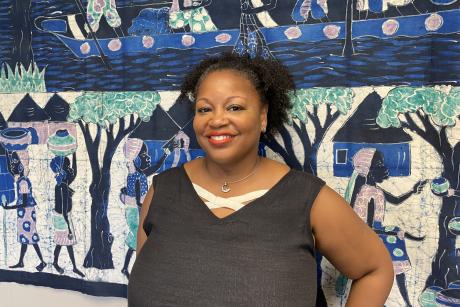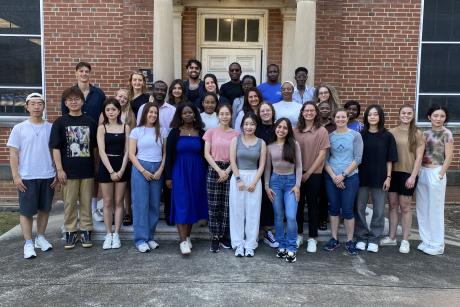Here we are: the final semester of our journey together (MS in global health, Class of 2019)! I am sure we all have mixed emotions about it—at least I do. I am ready for the next steps, but I am also not too sure what the next steps look like. For those whose next steps are a bit fuzzy like mine, remember: You are NOT alone.
This past week, though, I learned a few things that can alleviate some our worries, which by the way, I have come to realize are completely normal.
This past week, I attended a career fair in Washington DC organized by the Society for International Development (SID). At the fair, I learned a great deal from staff of the companies represented there. A day after the fair, I met with a health policy professional who also shared incredible lessons that I found helpful.
In this blog, I will focus on the biggest lesson I learned, which is “There is more to flexibility than being okay with maybe.” (Also check out my bonus tips near the end of the post!)
Flexibility Is More than Being Okay with “Maybe”
Has anyone ever told you that it’s important to be flexible? I’ve been told this on many occasions. I know what being flexible entails when doing research, but what does it look like when searching for jobs and preparing for the next steps after a costly education?
Prior to this week, I understood “being flexible” as “it’s okay not to have a job immediately after graduation,” “have back-up plans,” etc. Flexible—the praised and ubiquitous word used in global health and any global related work—seemed to mean “being okay with maybe.”
However, based on my coffee conversation with the health policy professional, I realized being flexible meant so much more than “being okay with maybe”; it meant so much more than being okay with finding a job or position different (or, perhaps, inferior) to our ideal job/position. Besides being okay with a passive “maybe,” I realized that “being flexible” is an active learning process with three key ingredients: faith, preparation and a kick of unexpected adventures.
This is not a revolutionary idea, especially for those who have already been in the workforce and have years of work experience both locally and/or globally. But it was quite revolutionary for me, as a novice in this arena outside of academia.
The truly revolutionary lesson was that “being flexible” was not a passive game of applying to opportunities and waiting around for what will work and not work. Rather, it is an active game of (1) keeping our goals in mind, (2) seeking opportunities that align with them and (3) being patient and finding short-term opportunities to sustain us when things do not work out as planned (we all know: those bills will not pay themselves). For me, and hopefully for others reading this, this is somewhat of a relief. I didn’t come to this conclusion on my own and thus I am thankful to the health policy professional who took her time on a snowy day in DC to meet with me for coffee.
Additional Tips from my Career Preparation Weekend
- When looking for jobs, we should not only think about the salary. It is important to consider both the additional financial benefits and non-financial benefits the company/organization has to offer (e.g., career development opportunities).
- It is important to learn how to clearly convey our transferable skills. I heard about this before, but I’ve never actively practiced doing this.
- Each hiring manager focuses on different things during the interview process. Although all are interested in hiring people who are both passionate and skilled, some might focus more on skills, while others might focus more on passion. In a nutshell, we ought to be prepared to respond to a wide range of questions and be active listeners during the interview process to articulate our responses in a way that will be compelling to the interviewer.
- Career fairs are not as daunting as I thought, especially when we are prepared and view it as an opportunity to meet new people and learn about their work. Also, people generally enjoy talking about themselves, so asking these company representatives questions about their work made our conversations fun and informative.
That’s it, folks. I shared all of this because I am incredibly grateful to both the Duke-affiliated staff members who care about our career development and the non-Duke people I met in DC this past week.
Did I learn what my next steps will be after the fair and coffee conversation? Nope!
Am I confident I will find the right opportunities moving forward? Yes! And I believe all of my classmates will, too.
And now … back to a different kind of writing. Just as bills don’t pay themselves, that thesis won’t write itself!



